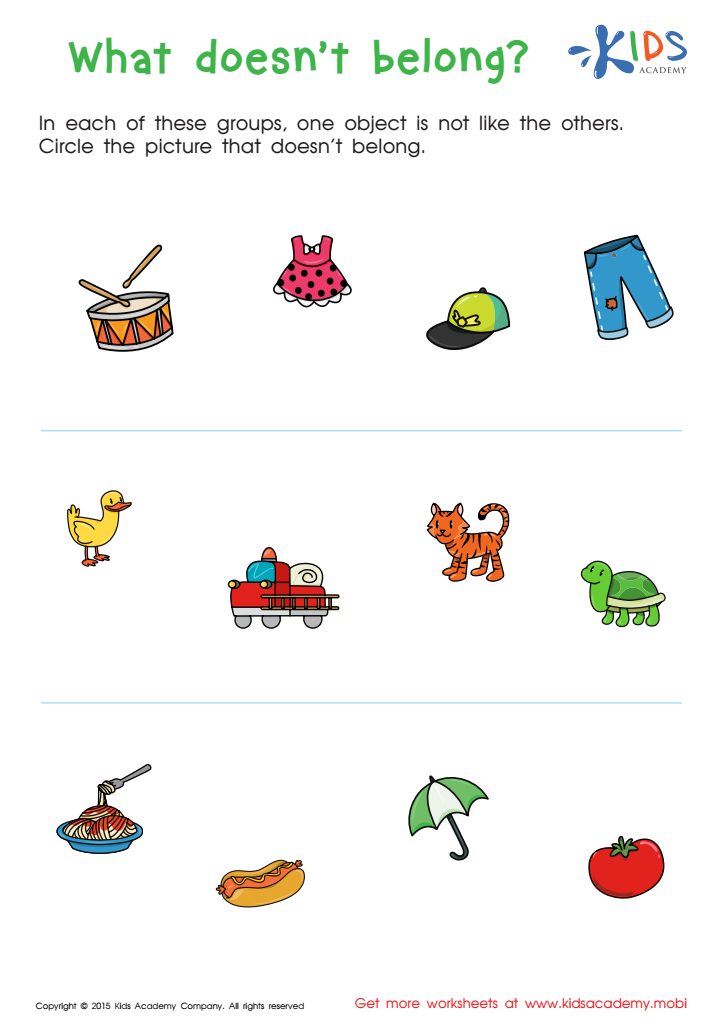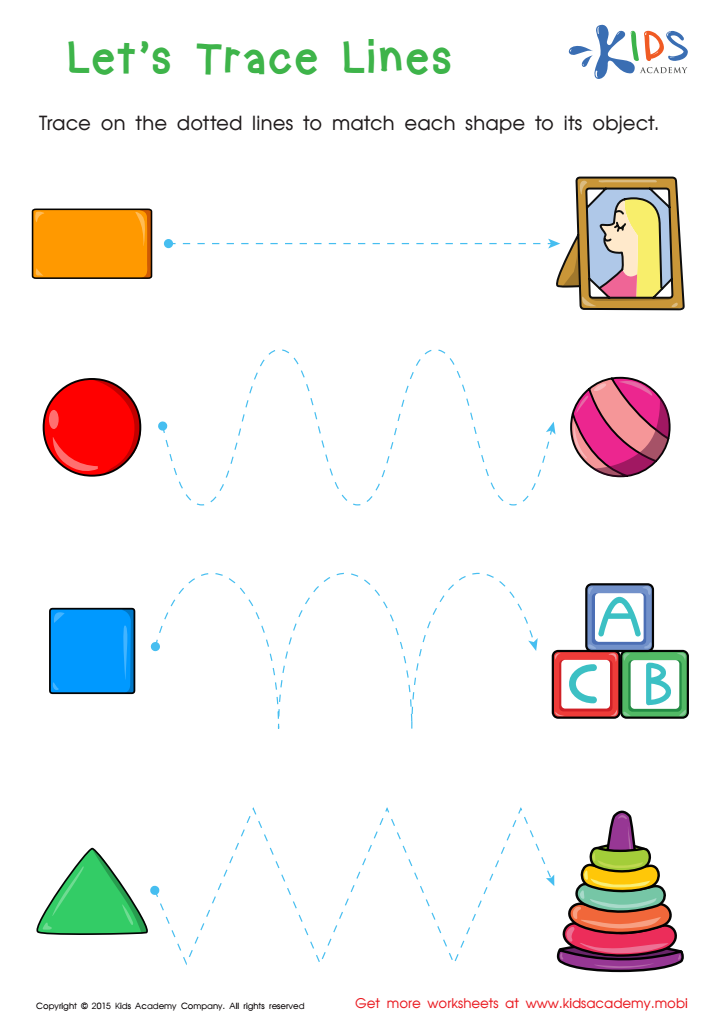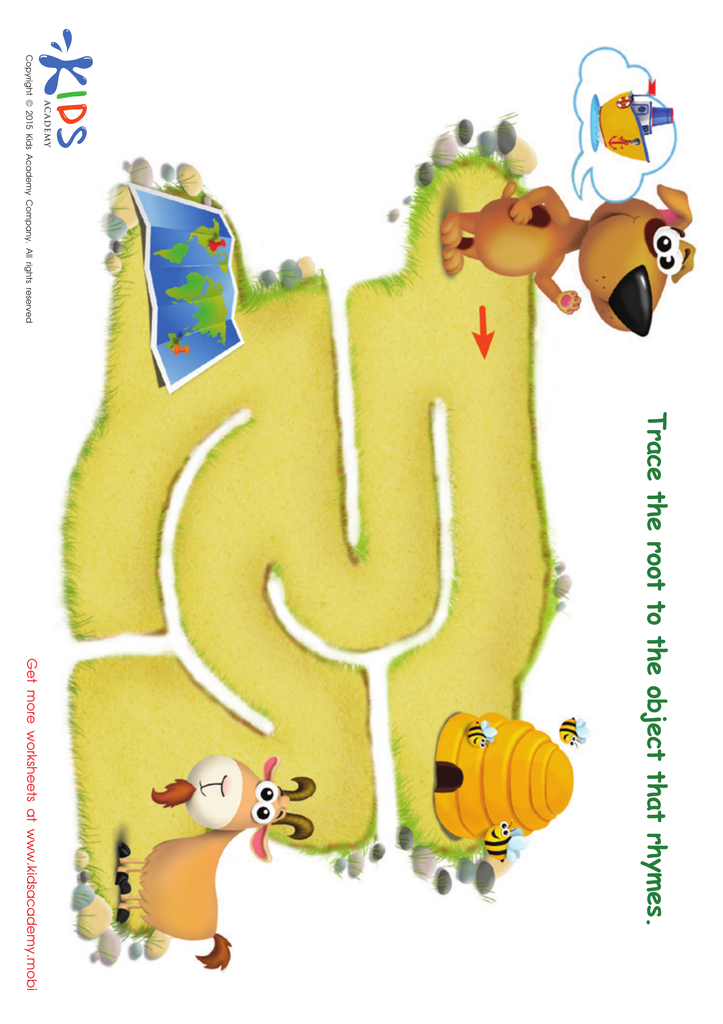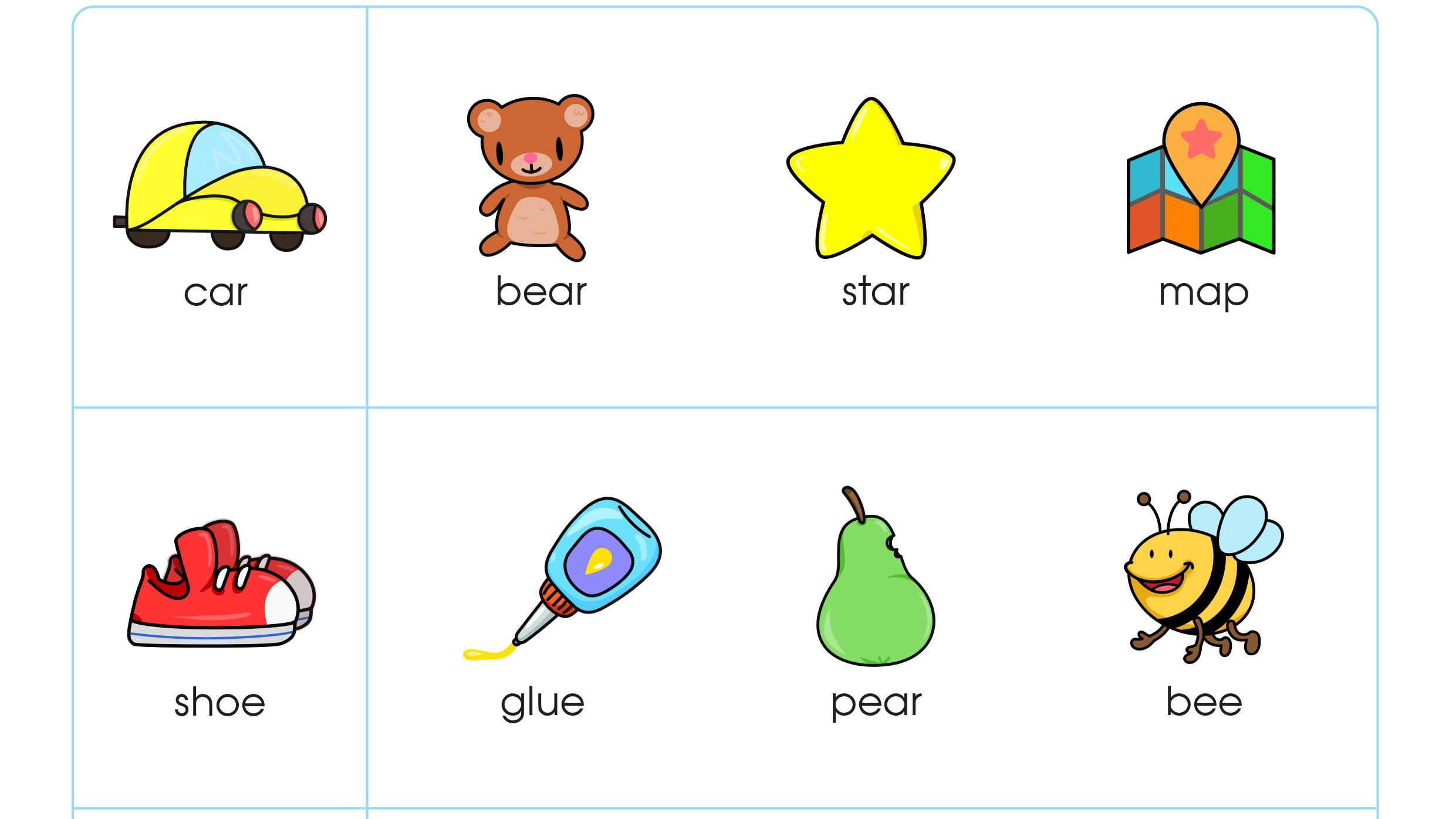Shape Recognition Rhyming Words Worksheets for 3-Year-Olds
3 filtered results
-
From - To
Our Shape Recognition Rhyming Words Worksheets for 3-year-olds combine fun with learning! Designed to enhance early literacy skills, these engaging worksheets help little ones recognize shapes while exploring rhyming words. Each activity presents vibrant illustrations and playful rhymes that capture children's attention, making learning enjoyable. As children color, trace, and identify shapes, they practice crucial skills such as vocabulary development and auditory discrimination. Perfect for home or classroom use, these worksheets foster creativity and critical thinking in a supportive environment. Give your child the tools they need to succeed in language learning with our interactive resources today!


First Words: What Doesn't Belong Worksheet


First Words: Let's Trace Lines Worksheet


Boat Rhyming Words Worksheet
Shape recognition and rhyming words are essential areas of early development for 3-year-olds, and parents and teachers should prioritize these skills for several reasons. First, recognizing shapes helps children understand and organize their visual world, laying the groundwork for future math and spatial skills. Familiarity with shapes fosters critical thinking as children identify, categorize, and differentiate various forms in their environment.
On the other hand, rhyming words play a pivotal role in language development. Engaging children with rhyming helps expand their vocabulary and improves phonological awareness—the ability to hear, identify, and manipulate sounds. This skill is fundamental for developing reading abilities and enhances auditory discrimination.
Combining shape recognition with rhyming can make learning exciting and interactive. Teachers and parents can create playful activities that involve both elements, such as singing songs about shapes, playing shape-matching games, or using rhyming picture books that emphasize both shapes and sounds.
In conclusion, fostering these skills cultivates a rich foundation for cognitive, linguistic, and social development, setting the stage for future academic success and lifelong learning. By actively engaging with shape recognition and rhyming, caregivers can help their children build confidence and critical thinking at a young age.
 Assign to My Students
Assign to My Students






.jpg)












